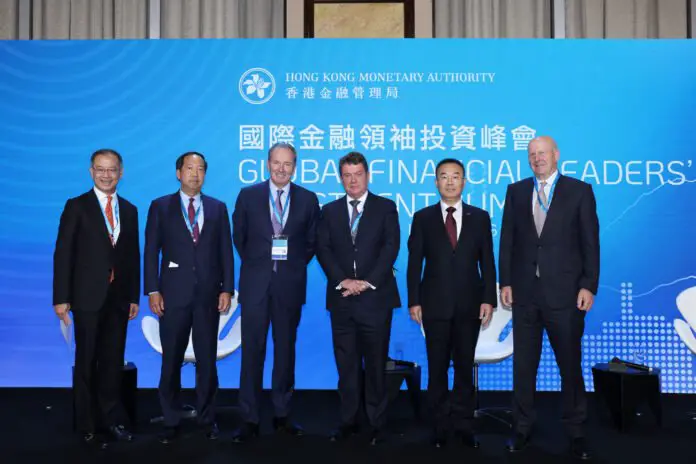Strengthening Hong Kong’s Role in Global Finance: Insights from the Global Financial Leaders’ Investment Summit
In a significant move to bolster Hong Kong’s position as a vital financial hub, Chinese officials overseeing various sectors of the world’s second-largest capital market convened in the city. Their presence underscored the importance of Hong Kong as a bridge connecting mainland China with global investors. This gathering, marked by high-profile discussions and strategic announcements, aimed to enhance the city’s role in international finance and facilitate greater market access.
The Connect Scheme: Expanding Opportunities
At the forefront of the discussions was the Connect scheme, a framework that allows global investors and mainland capital to engage with each other through Hong Kong. Wu Qing, the chairman of the China Securities Regulatory Commission (CSRC), highlighted plans to expand this initiative beyond stocks, bonds, options, and wealth management products. He indicated that commodities would soon be included in the trading options available under this scheme, thereby broadening the investment landscape for international players.
Wu emphasized the regulator’s commitment to “steadily widen the openings in the commodities and financial futures market” to attract global capital. This initiative is expected to enhance the stability, transparency, and predictability of financial policies, making Hong Kong an even more attractive destination for investors seeking opportunities in the Asian market.
A High-Level Gathering of Financial Officials
The Global Financial Leaders’ Investment Summit, organized by the Hong Kong Monetary Authority (HKMA), served as a platform for influential mainland financial officials to express their support for Hong Kong. Among them was Vice-Premier He Lifeng, who has not only played a pivotal role in shaping China’s financial policies but also represents the highest-ranking Chinese financial official to visit Hong Kong in years. His participation signifies Beijing’s renewed focus on enhancing Hong Kong’s financial ecosystem.
In a recorded speech delivered via satellite last year, He Lifeng outlined Beijing’s commitment to facilitating the listing of more mainland companies in Hong Kong. This move is expected to improve mutual market access, issue treasury bonds, and strengthen the city’s position as a global offshore yuan hub. Such initiatives are crucial for reinforcing Hong Kong’s status as an international financial center and supporting China’s broader economic opening.
The Enduring Strength of “One Country, Two Systems”
During his opening remarks at the summit, Vice-Premier He Lifeng reiterated the importance of the “one country, two systems” framework, which has been instrumental in maintaining Hong Kong’s unique financial landscape. He stated, “Once again, it is proved that with a good system of ‘one country, two systems’, the sturdy support of the country and hard work of the people, Hong Kong’s status as an international financial centre will be more prominent.”
This statement reflects the ongoing commitment of both the central government and local authorities to ensure that Hong Kong remains a competitive and dynamic financial hub. The collaboration between mainland officials and Hong Kong’s financial institutions is seen as a critical factor in navigating the complexities of global finance.
Conclusion: A Promising Future for Hong Kong’s Financial Sector
The discussions and announcements made during the Global Financial Leaders’ Investment Summit signal a promising future for Hong Kong’s financial sector. With plans to expand the Connect scheme and enhance mutual market access, the city is poised to attract more global investors and strengthen its role as a key player in international finance.
As Hong Kong continues to adapt and evolve within the framework of “one country, two systems,” the support from Beijing and the dedication of local financial leaders will be vital in ensuring that the city not only retains its status as a leading financial center but also thrives in an increasingly competitive global landscape. The commitment to improving stability, transparency, and predictability in financial policies will undoubtedly foster a more conducive environment for investment and growth in the years to come.

